One of the world’s largest gas reserves has recently been discovered in Mozambique. International oil and gas companies such as Anadarko, ENI, ExxonMobil and Shell are lining up to get a piece of the pie. In theory Mozambique can make a great deal of money from the gas, however in practice things are very different.
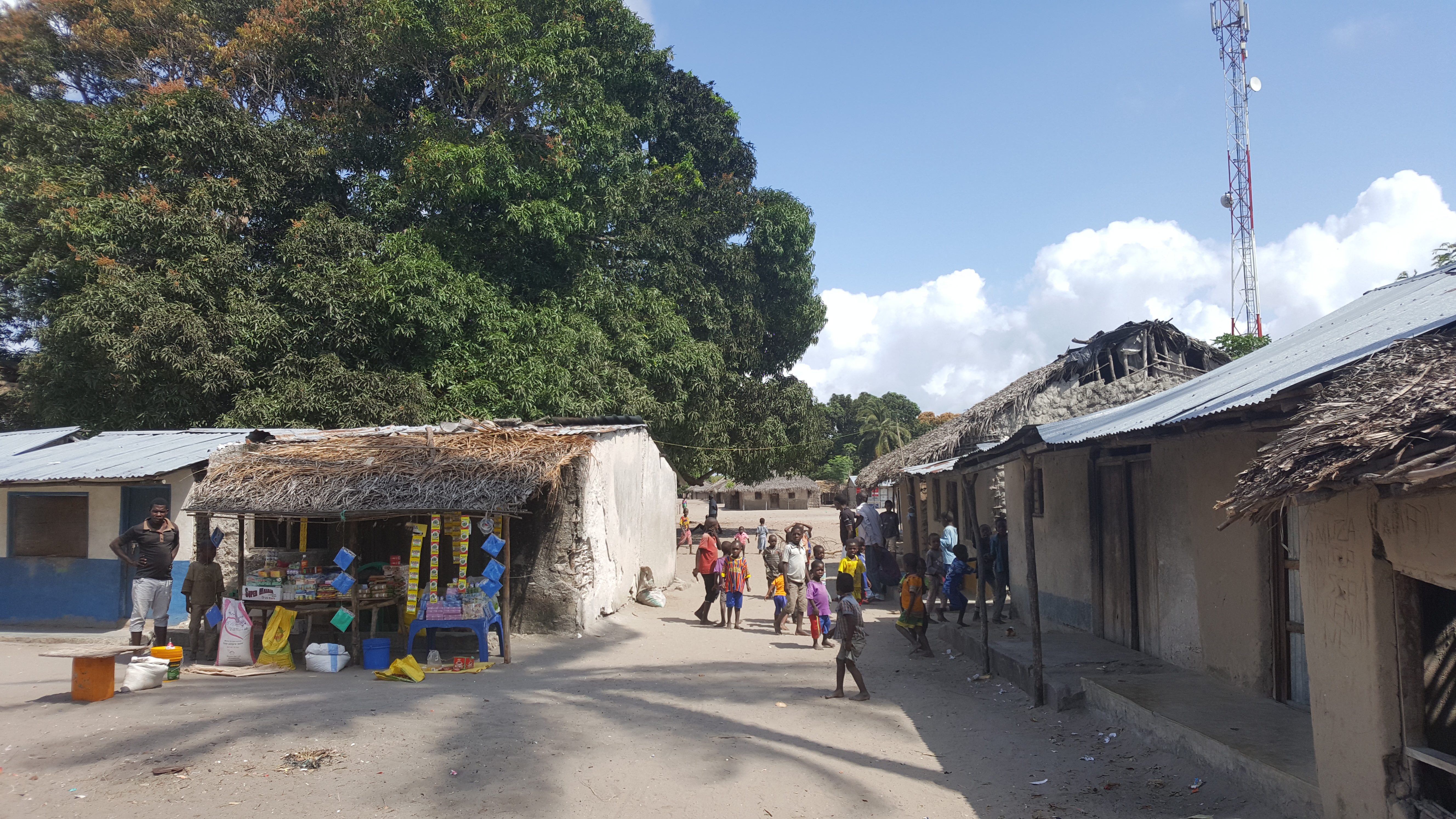
“Life has come to a standstill.” Under an awe-inspiring starry sky, we talked to Musa, Ismael and Kabili from the village Quitupe in the far north of Mozambique. “We could be forced to leave any day now. What’s the point in doing anything new or improving our homes?” Musa, Ismael and Kabili are tired. Of waiting, of the uncertainty, of ignored agreements and of resisting.
For six years now, people like Musa Simango have been confronted with what seems like their unavoidable departure from their home soil. The same applies to several thousand other inhabitants of the Afungi peninsula who have to be displaced to accommodate the gas industry’s arrival.
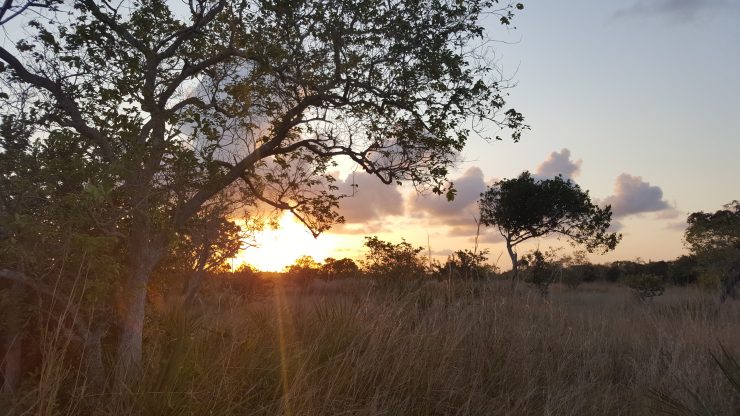
Gas discovery
In 2011 and 2012, gas and oil multinationals ENI from Italy and Anadarko from the U.S.A. made a major discovery: a gas field containing 7000 billion cubic meters of gas, just off the coast of Cabo Delgado, Mozambique’s northernmost province. The world’s fourth largest offshore gas project. The discovery is worth hundreds of billions of dollars.
ENI has built a base of operations at a prime location along the coast, flanked by a number of new hotels. There are plans for an airport, a new port, two to four LNG facilities for a consortium led by Anadarko, a gas to liquid (GTL) plant where Shell intends to turn natural gas into liquid fuel, and a fertiliser factory for the Norwegian company Yara. The LNG facilities and associated industry will cover about 4,000 – 7,000 hectares. Approximately 2,500 people from local communities will be displaced for this. Others will lose (part of) their land.
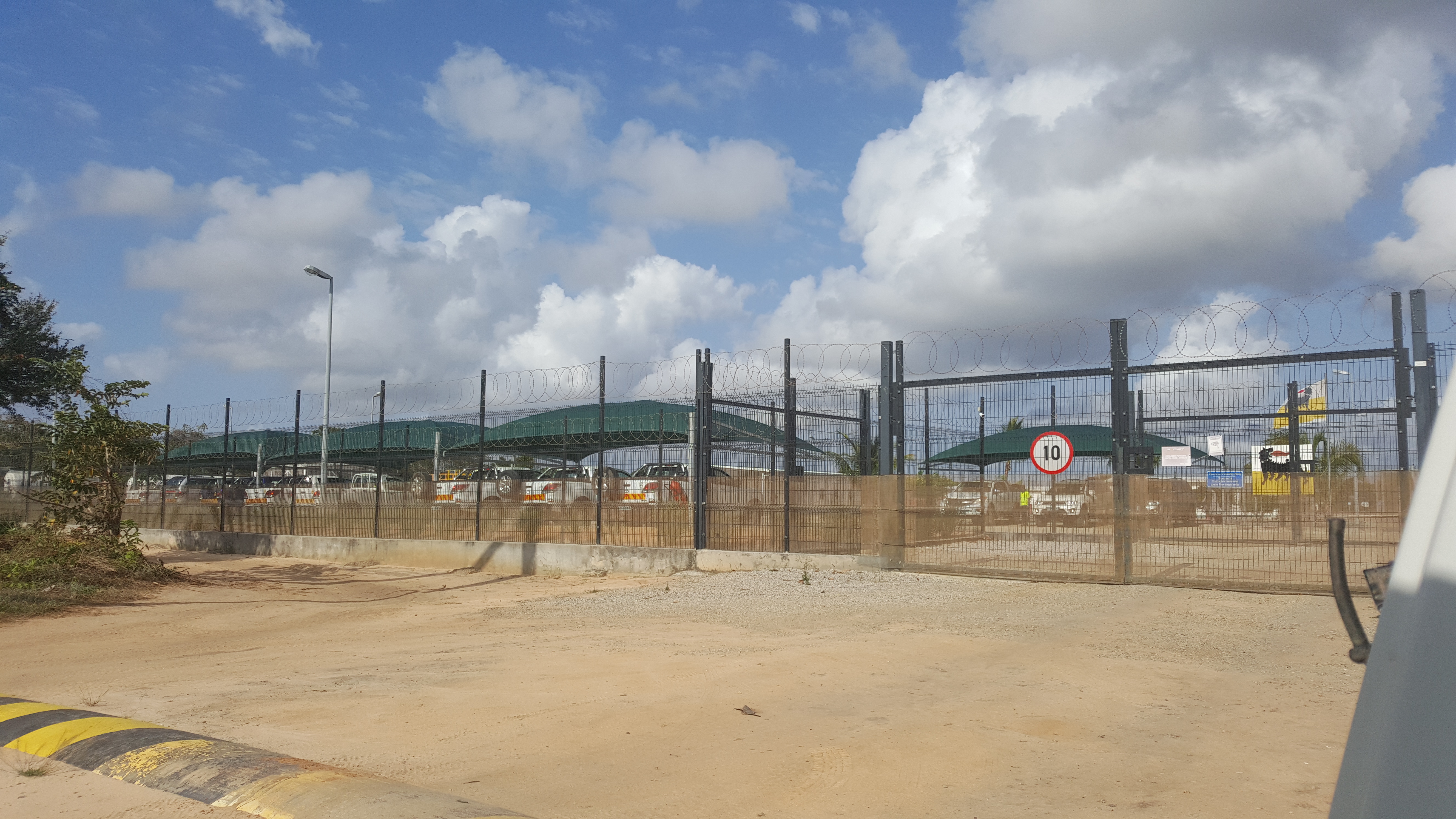
Turning point
The impact of the discovery is immense. The gas could be a turning point for the country, poverty-stricken by a lengthy Portuguese domination and a bloody civil war between the former independence fighters of Frelimo, the party currently in power, and Renamo, partially supported by South Africa, which only ended in 1992. The gas could solve Mozambique’s dependence on the whims of international donors and the notorious adjustment programmes of the IMF.
IMF economists expect investments in and associated with Mozambique’s gas industry to top one hundred billion dollars, about three times (!) the country’s gross national product. Over the coming 30 years, the Mozambican government will gain 500 billion in extra tax dollars. Thanks to the gas Mozambique would be able to transition from the bottom rungs of the UN development index to the position of a middle income country.
The Netherlands has also started looking at Mozambique with new interest. ‘A change is underway,’ wrote the Dutch embassy in 2012, ‘the relationship between Mozambique and the world is being upended’. From then on, the Dutch government has focused on acquiring contracts for Dutch companies in Mozambique more than ever before. These include Shell that is also investing heavily in neighbouring Tanzania, Fugro, dredgers Boskalis and Van Oord, as well as many others keen to benefit from Mozambique’s gas boom.
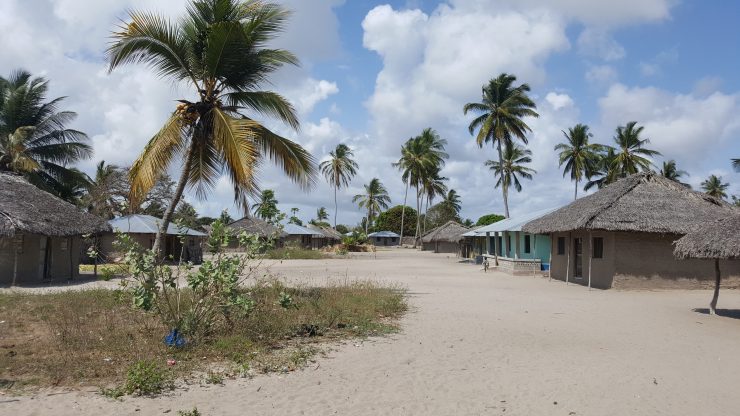
Presource curse
Expectations are high and so are the stakes. However, the reality of today’s Mozambique is that the country is suffering from a phenomenon known as the resource curse. This occurs when countries have large natural resources yet display little to no economic growth, increasing inequality, (armed) conflict and corruption.
Mozambique’s current government has been forced to implement budget cuts. It cannot pay its rapidly increasing national and foreign debt, and does not have access to IMF funds because of the 2 billion dollar in loans the country had kept secret (more on that in the next article). According to the Norwegian embassy’s research team, Mozambique’s current crisis is so closely related to the discovery of gas that it refers to it as a presource curse. One which manifests itself before a single drop of liquefied gas has been exported.
Originally, Mozambique was expected to start exporting gas from 2018 onwards. Predictions have now shifted to 2023 or even later. At the time of writing, only a single definite decision to invest has been made. Italian company ENI is set to build a seven billion dollar floating LNG platform 40 km of the coast. US company Anadarko concluded an agreement with the Mozambican government last March, but is waiting to give the green light until negotiations with potential gas buyers have been concluded.
Viver bem
We had to interrupt our conversation with Musa Simango. The night had fallen and our driver Chehane received a phone call from. his worried boss who does not want him to drive after dark. A few days before our arrival in Cabo Delgado an armed assault had taken place on a police station in nearby Mocimboa da Praia. After two days of fighting the attackers had been killed or had fled, some towards the Tanzanian border. Mozambique’s army was sent in and set up checkpoints along the road from Mocimboa da Praia to Palma.
We return to Quitupe the following day, driving along the road that Anadarko built to transport building materials. People equipped with a hi-vis vest, a helmet and a red flag have been posted every couple of hundred metres. These traffic stewards were recruited from the surrounding villages by Anadarko and direct traffic six days a week. The road ahead and behind us is empty. The traffic stewards are part of Anadarko’s Corporate Social Responsibility (CSR) programme that aims to ‘sustainably elevate the standard of living in the communities’ ‘enabling their inhabitants to be independent, self-sufficient and proficient’.
“Traffic steward is one of the jobs people have around here,” explains Simango while we walk through Quitupe. “The other jobs are in cleaning and security. There is a definite lack of respect when it comes to us. These aren’t serious jobs and nobody here occupies a more senior position. We are all servants.” There are educational programmes for the local population, but the quality thereof is far from uniform. On a diploma issued by the South African Capital Outsourcing Group that we were shown, a course participant was declared competent with regard to, among other things: HIV/Aids consciousness, hygiene, working with tools and basic communication. Two other remarkable competences were viver bem (living well) and competencias de vida (life skills).
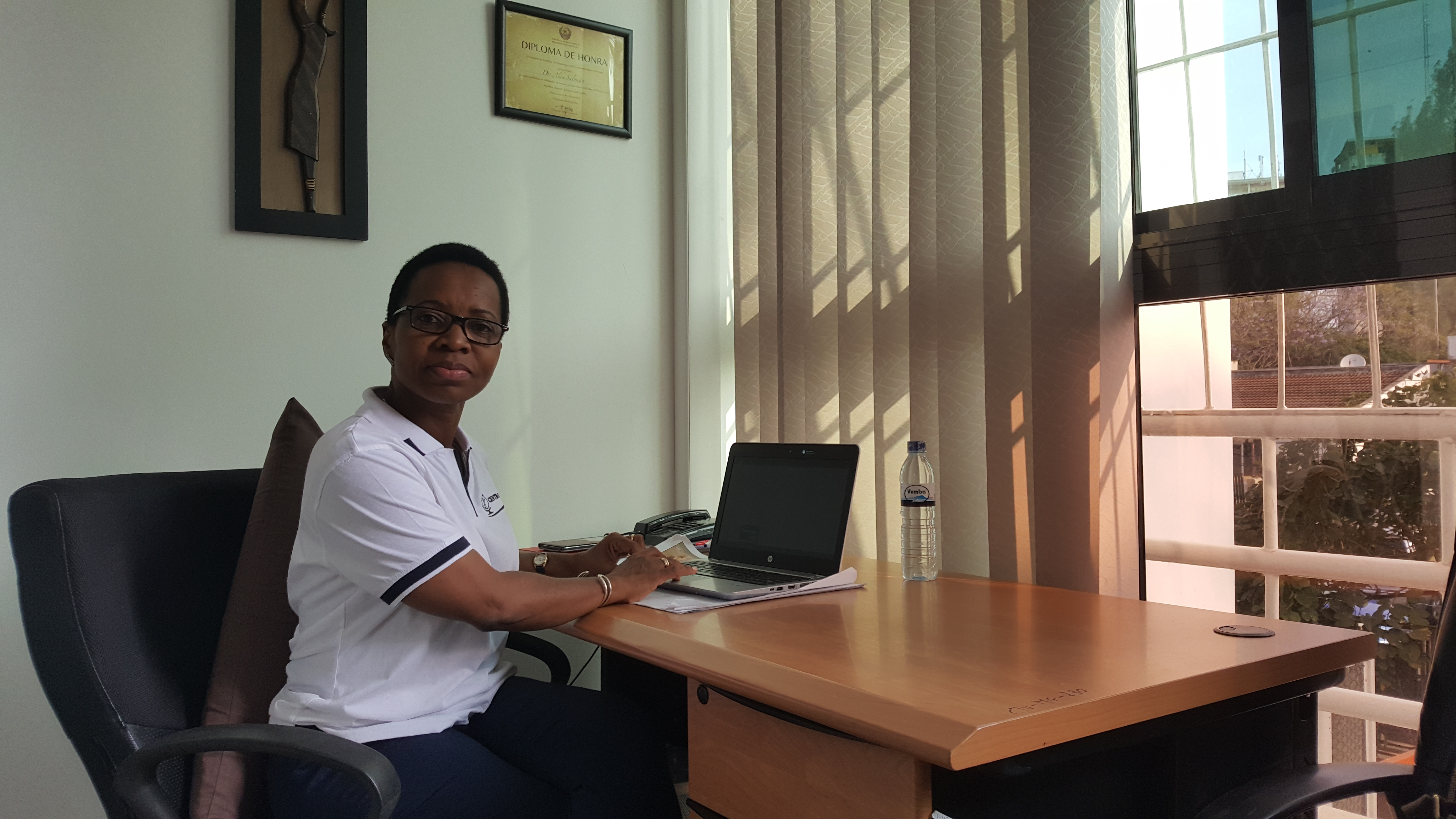
Resettlement
The CSR programme basically aims to obscure the fact that the company is riding roughshod all over the rights of the inhabitants of Afungi. As an environmental lawyer for the Centro Terra Viva (CTV), Alda Salomao has become closely involved in the process concerning the resettlement of the affected communities’ 2,500 inhabitants. At CTV’s office in the centre of Maputo she candidly talked to us about her initial meeting with Anadarko’s representatives in October 2012. Subject of that meeting: possible partnership between Andarko and CTV with regard to the abovementioned resettlement.
Initially Salomao couldn’t believe her ears. The US company had already been granted the right to use the land by the Mozambican government with a so-called DUAT (direito de uso e aproveitamento da terra). “But that’s not right and I told them so. It’s unbelievable that they were granted the right to the land before they started talks with the population about resettlement.” In line with the socialist roots of Frelimo, the party that has ruled since independence, land in Mozambique belongs to the state. Mozambique has no land ownership, only usage rights. Under exceptional circumstances the state can transfer this right to another party, however it first has to gain prior, informed consent from the local population. This never happened in Afungi. “How can the government have decided to allow these investments to go ahead in an already inhabited area?”, Salomao wonders.
Riots
In Salomao’s view the investors also don’t get off scot-free. “No one would fly halfway around the world to bang heads with everyone and everything because they haven’t done their [legal] homework?” She doesn’t believe that Anadarko’s legal team did not know about Mozambican legislation particularly because there are billions involved. According to Salomao the question shouldn’t be whether, but “ So why is it they are either free-riding on processes that are not legally correct. Or just intentionally violating the law?” The answer is simple: “because they can”.
The conflict that arose in Afungi could and should have been avoided thinks Salomao. Mozambique has a long history of forced resettlement that started during the colonial era. More or less the same thing happened with more recent mega projects such as the coal mines in Tete province. On the eve of Minister Ploumen’s visit to Mozambique in 2014, the Dutch government wrote that ‘the resettlement of village communities for the benefit of mega projects [has] so far always led to problems. Because the government took shortcuts or because issues were tackled in an untransparent manner, to this day all of these processes have caused riots.’
To Salomao the machinations surrounding the resettlement process in Afungi is even more shameful than the coal industry in Tete. “We’ve been through this before. We should have learned from that.”
Intimidation
Despite their misgivings Salomao and CTV decided to enter into partnership with Anadarko. Now that the decision to build in Afungi could perhaps no longer be revoked, they hoped to be able to contribute to the proper implementation of the resettlement. They would be present during negotiations regarding compensation and would inform the population as to their rights. The ‘partnership’ was brief. In 2013 Salomao was arrested and detained briefly for allegedly inciting the communities and spreading disinformation.
Despite her arrest Salomao remains closely involved with Afungi’s fate. Quite by coincidence, on the day we met with her, she was approached anew by Anadarko to renew the partnership. CTV agreed to that once again. Anadarko and Mozambique’s government have concluded an agreement and construction on new houses for Afungi’s inhabitants is due to start in March. Anadarko has also started paying compensation to some of the families affected by this.However, CTV is not allowed to talk about the details of the cooperation or the content of the agreement that was finally reached.
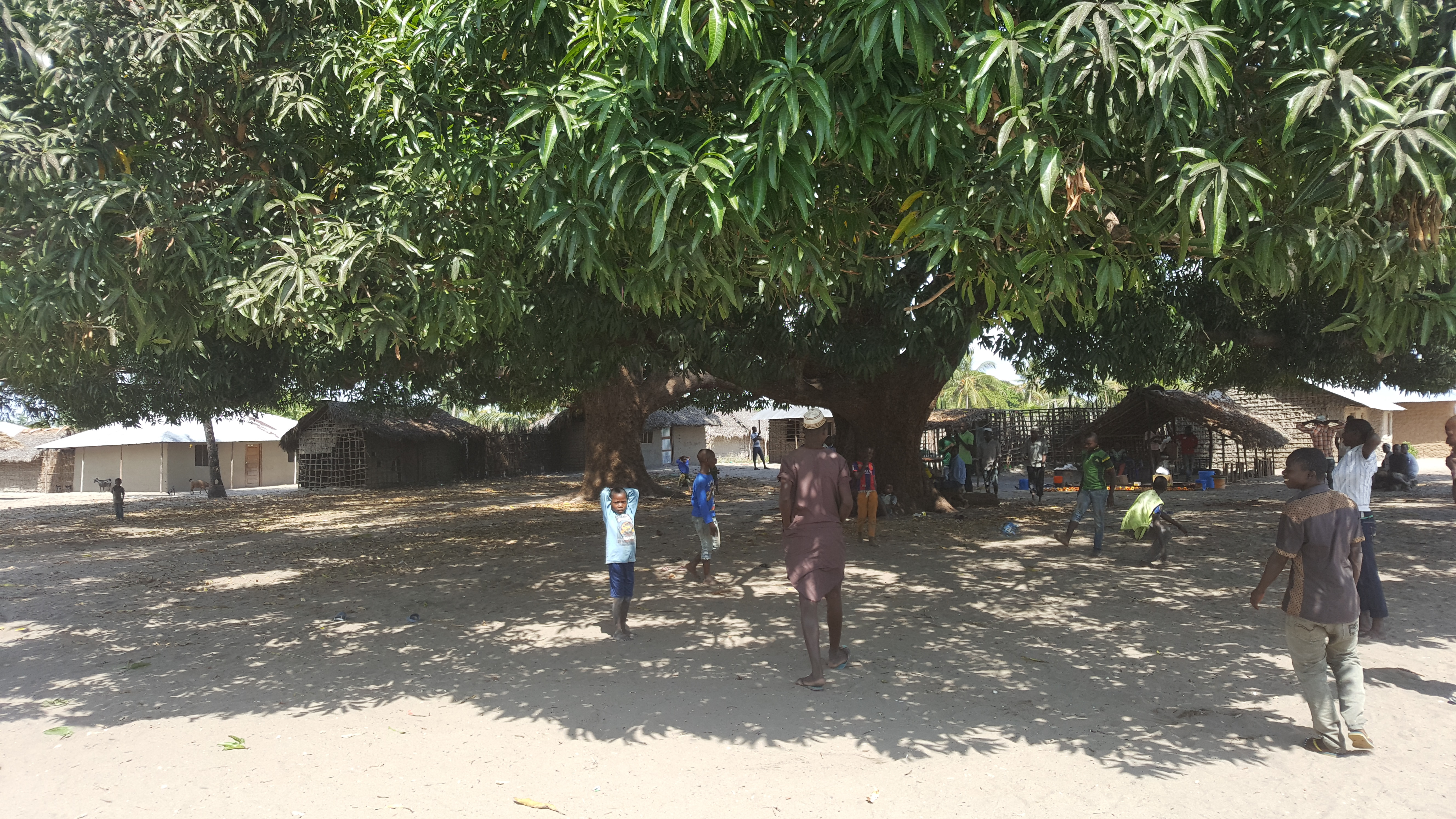
Even people from the villages themselves are being intimidated by the Mozambican authorities. Take for example Simango, who was a member of the committee on the resettlement of Quitupe. “When I wanted to invite CTV to one of our meetings to inform us about our rights, the government gave me an ultimatum. If I started cooperating with NGOs I would have to leave the committee. I decided to do this.” The community leaders didn’t welcome Simango’s choice. Simango organised the meeting regardless, but on the day of the meeting the village elders were nowhere to be found. They didn’t want to be seen asfraternising with the NGOs. The inhabitants of Quitupe who had come en masse made a final attempt to convince the elders otherwise, but to no avail.
Behind the ‘short-cuts’ and ‘untransparent manner of tackling issues’ the Dutch government refers to, lie bald faced intimidation and divide and conquer policies. “Those who wish to cooperate with NGOs are clearly disadvantaged in comparison to those that toe the government line,” Simango continues. “So this process causes intra-community conflict. A divide has been created between local leaders and the population. We just want the government and companies to adhere to the law, but because we are divided, we cannot force them.”
The names Musa, Ismael and Kabili are pseudonyms devised to protect the interviewees’ identities.
About our research
Platform Authentieke Journalistiek has spent the past year studying the development of Mozambique’s gas fields. We visited the country in October 2017 and spoke to the inhabitants of communities affected by the gas industry, various oil and gas companies, NGOs, journalists and Mozambican government representatives. A broad range of experts in the field of Mozambique’s politics, economics and history. This initial article deals with the impact of the gas discoveries on the villages in the surrounding areas. The second article will take a broader perspective asking how likely it is that the Mozambican population as a whole will benefit from the advent of the gas industry in the country. In the third and final piece we will examine the Dutch government’s financial and diplomatic role in attempting to enable Dutch companies to benefit from Mozambique’s new riches. A freedom of information act request was submitted a considerable time ago. We are blogging in Dutch about the drawn out, stymied process surrounding this request. Read the second English article about this research here: The Netherlands helps Shell profit from gas in dirt-poor Mozambique.


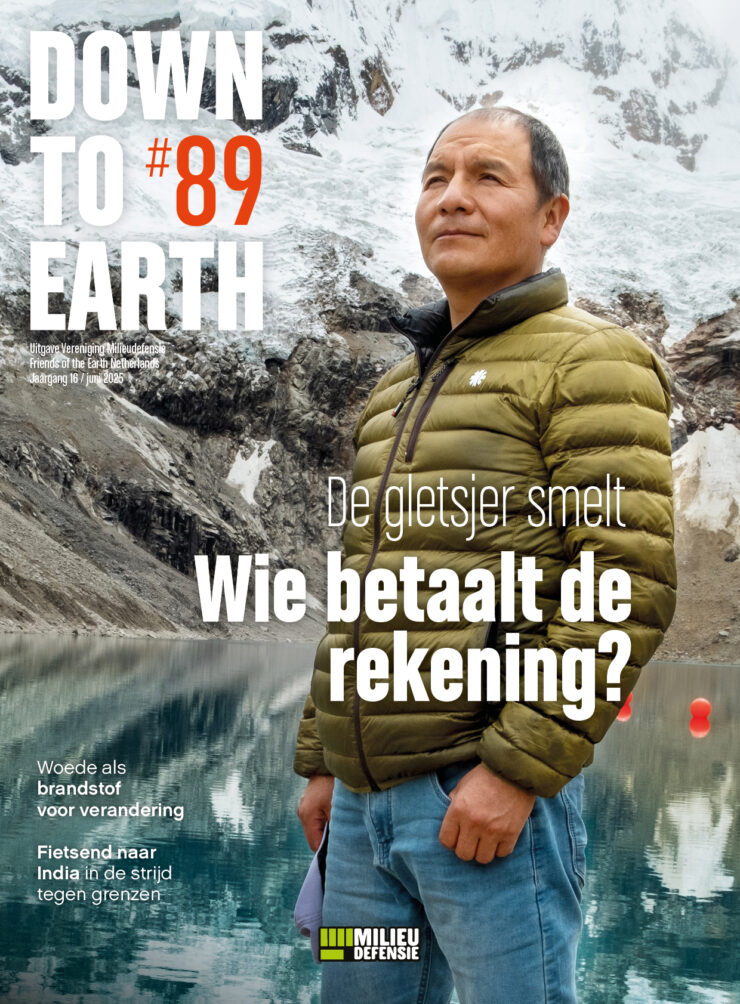
[…] a leading exporter of liquefied natural gas (LNG), estimated at 5,000 billion cubic metres. The gas reserves are located in the northern province of Cabo […]